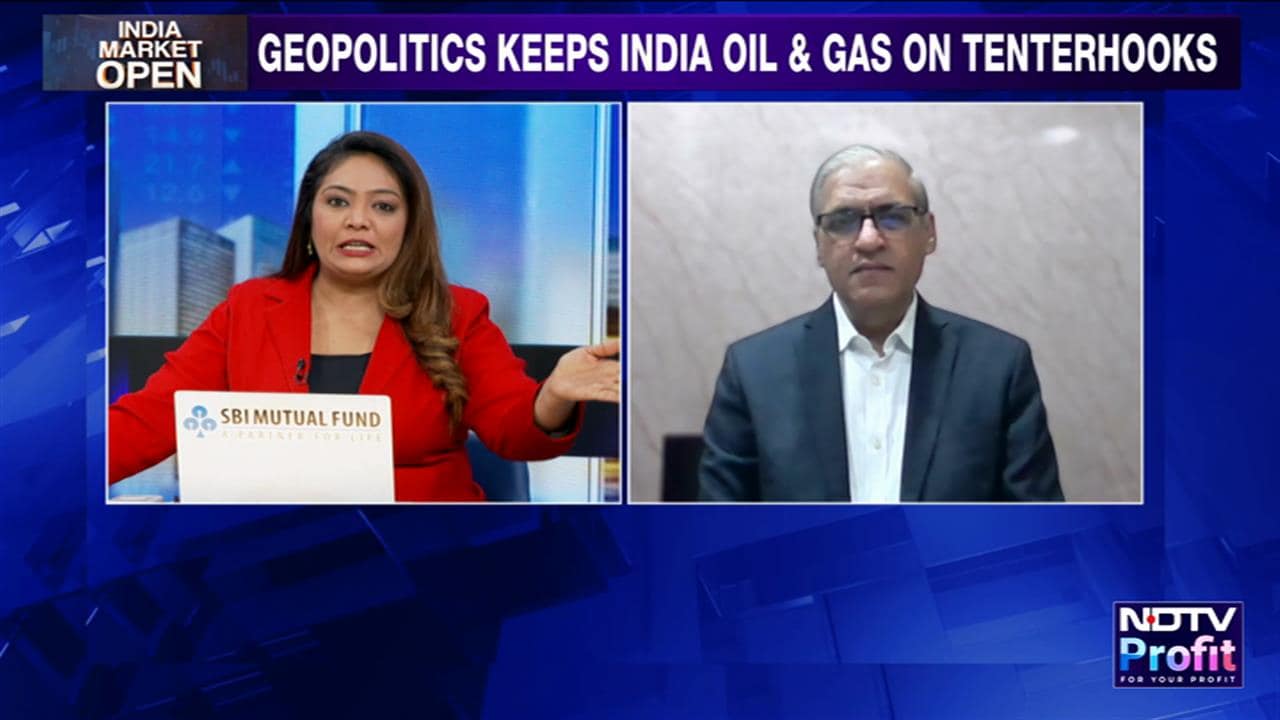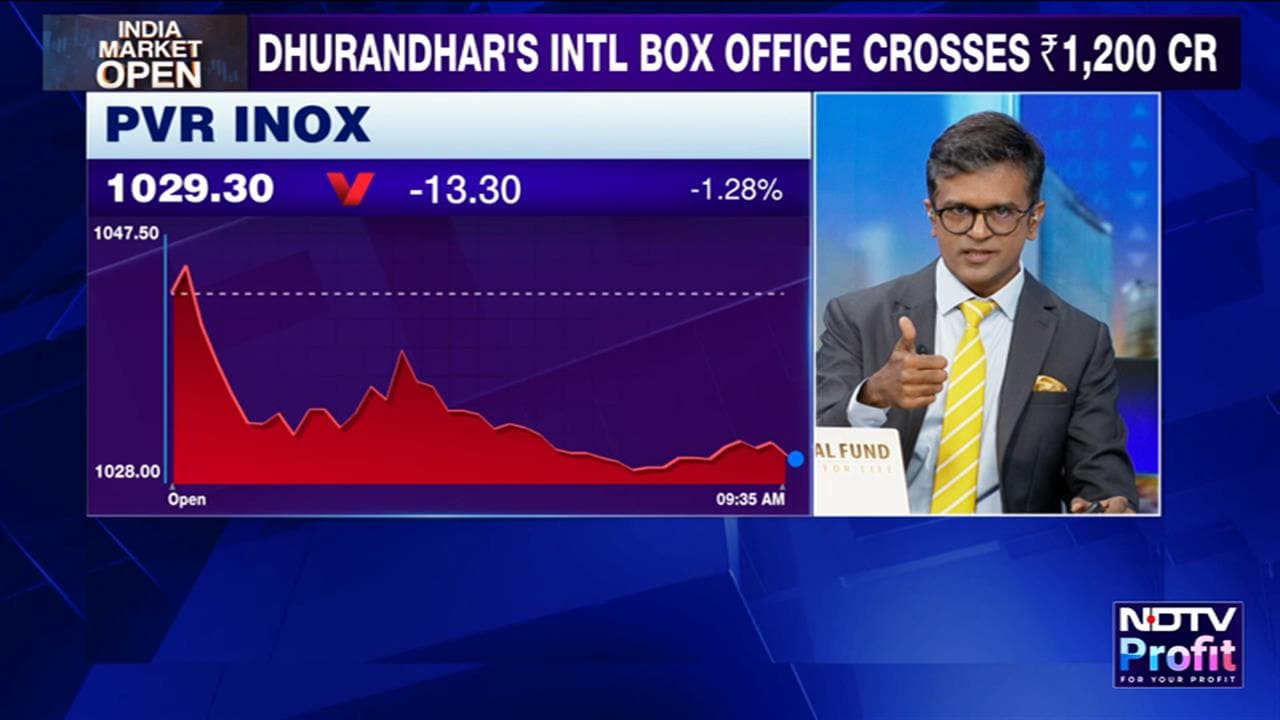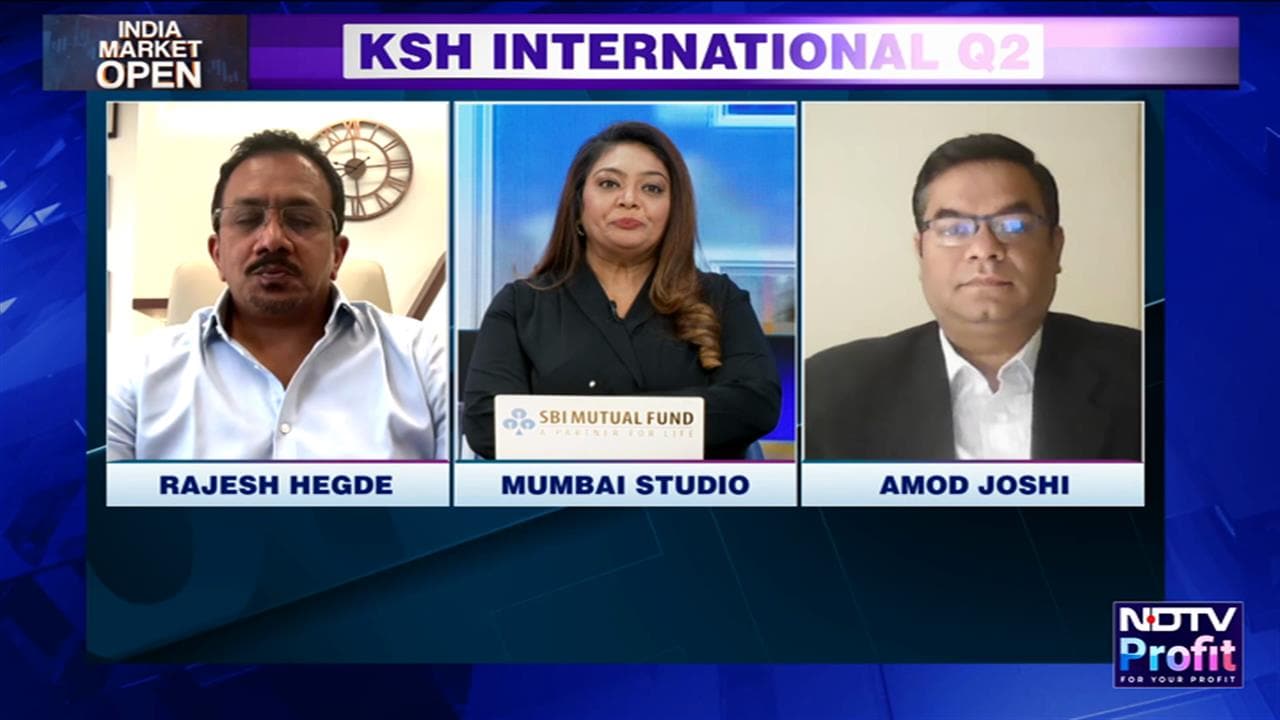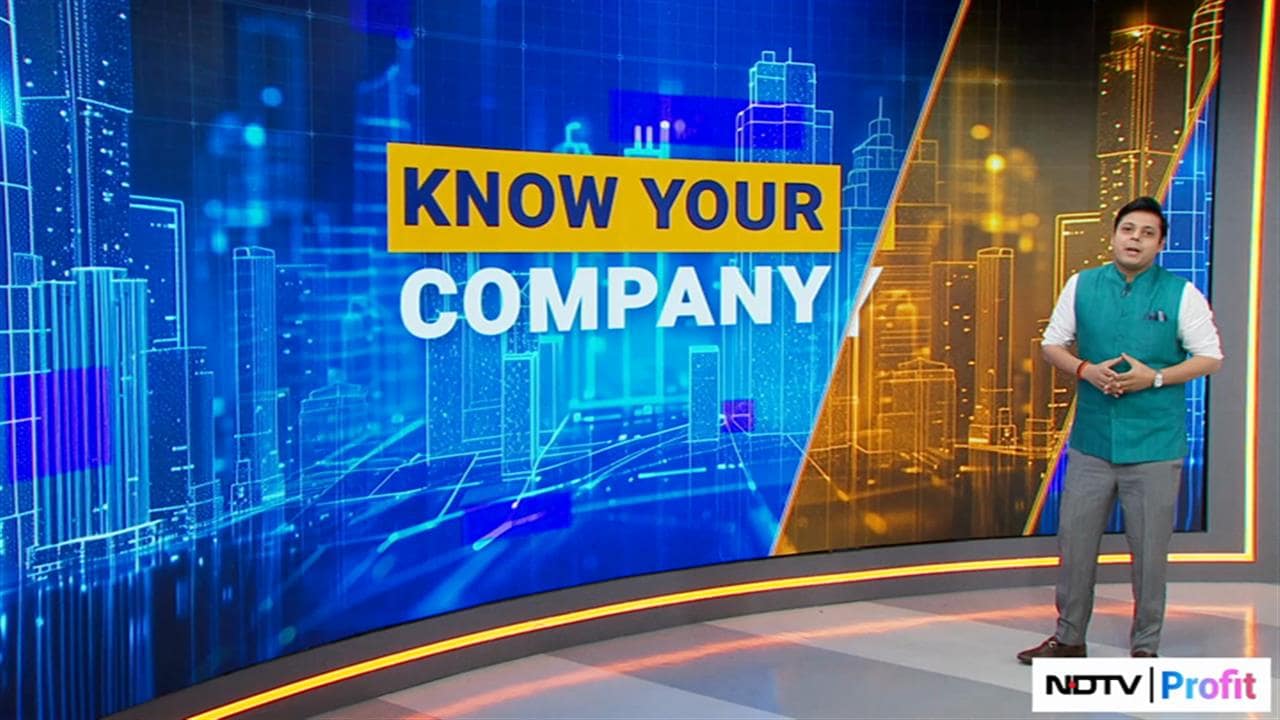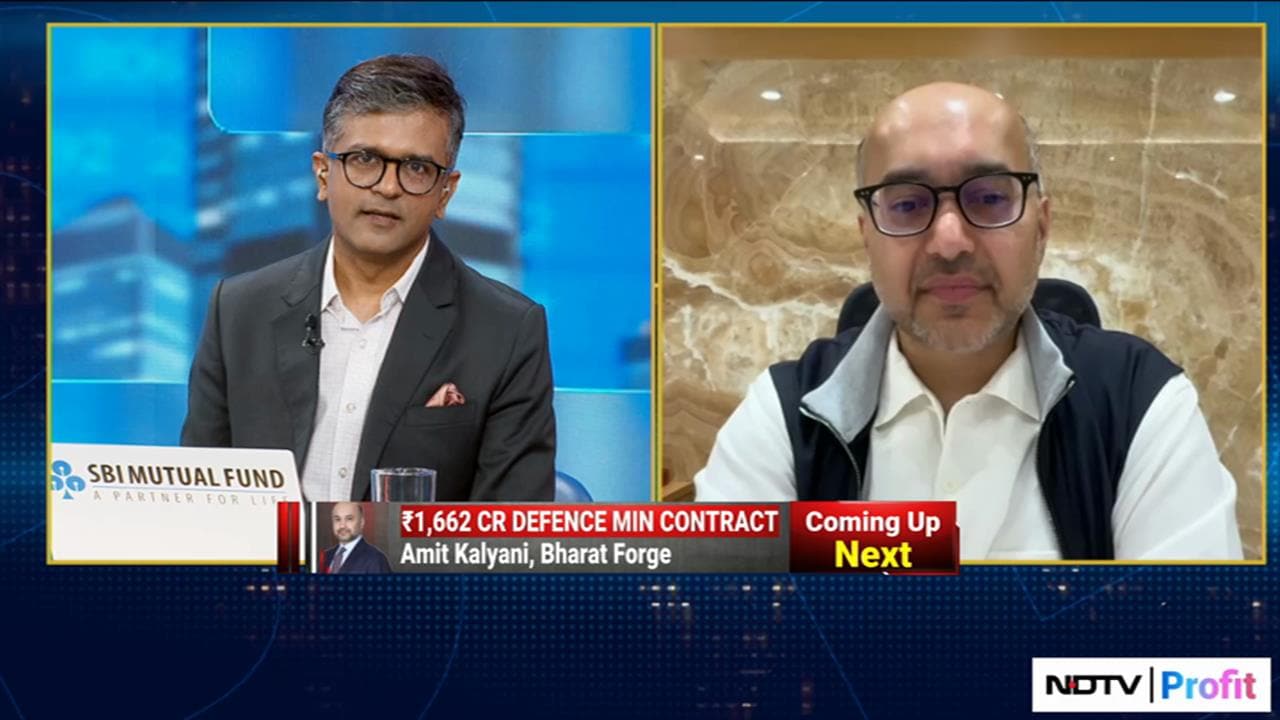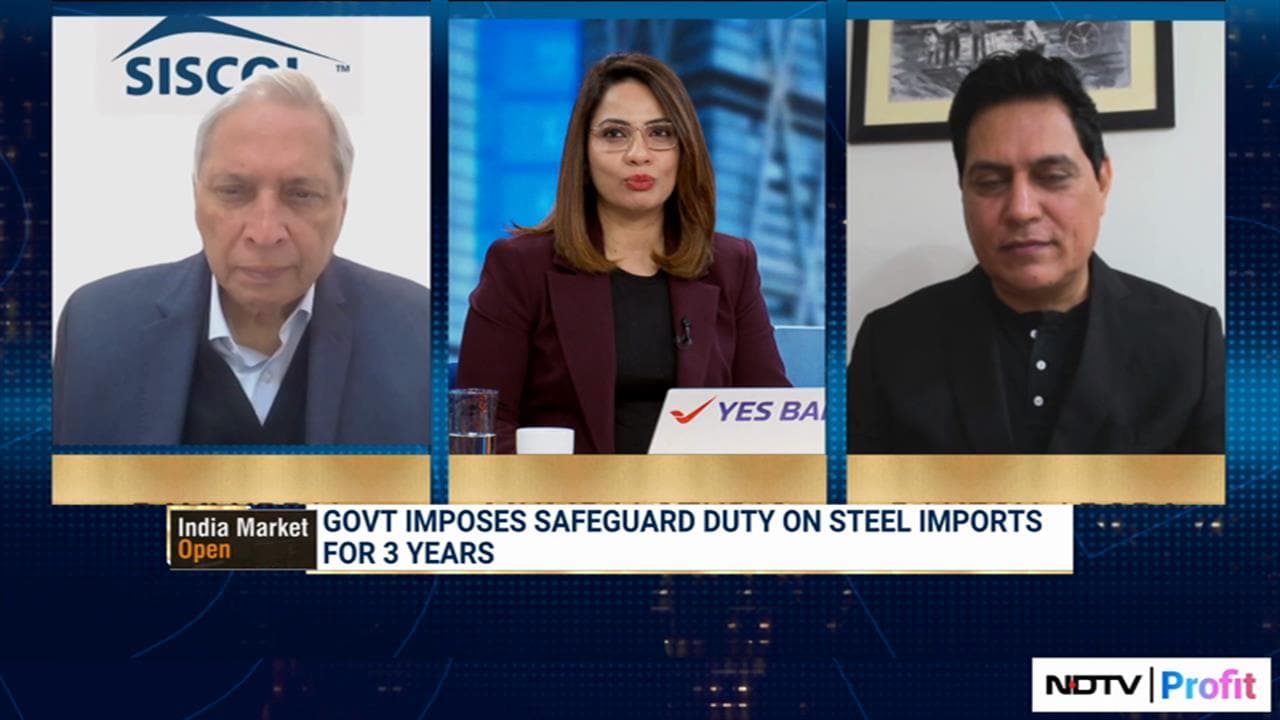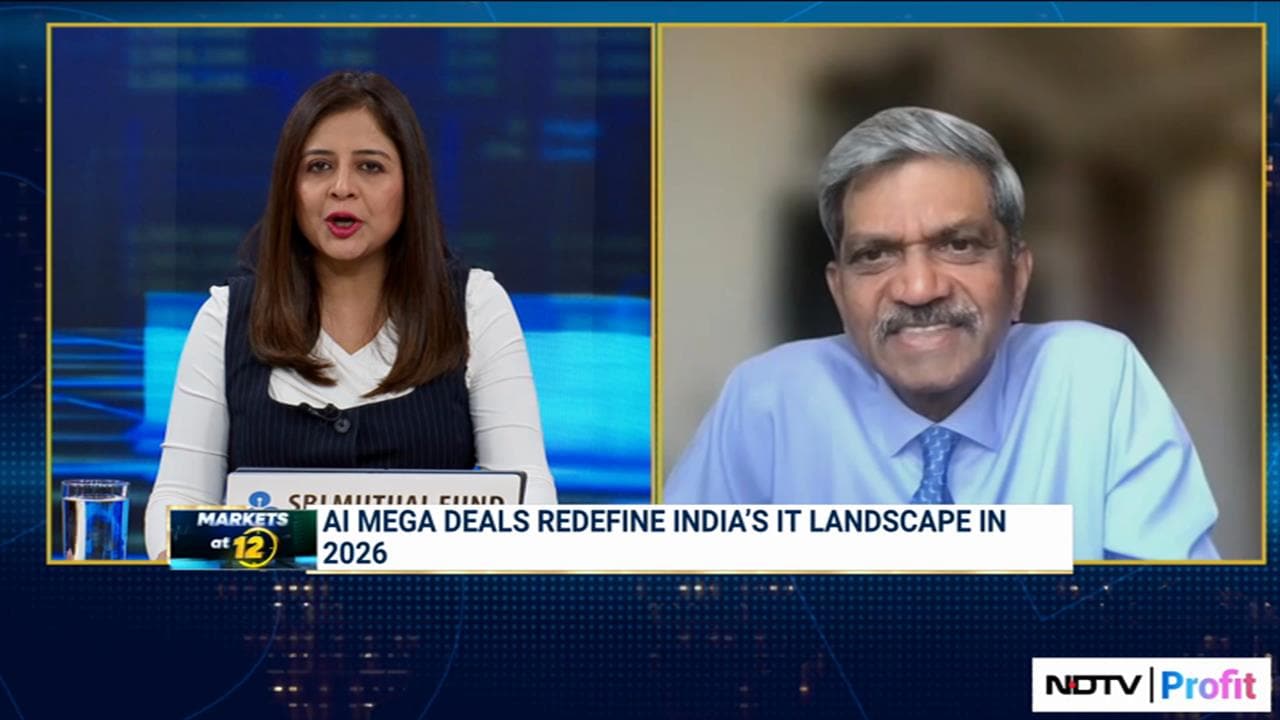India's growth potential outshines global peers, despite current stretched valuations, according to Andrew Holland, chief executive officer of Avendus Capital Alternate Strategies.
"Yes, the valuations are stretched and that's going to be a problem," he told NDTV Profit's Niraj Shah. However, he highlighted the substantial growth opportunities in India compared to overseas markets, especially in sectors with ongoing expenditure for many years.
"This is the time for India's growth. So, I suspect you are going to have high valuations and that some will get stretched," he said. Holland suggested evaluating India's valuations through a growth PE perspective. He cited industrial giants like Larsen & Toubro Ltd. and Bharat Heavy Electricals Ltd., where order flow significantly impacts share prices. "Execution is a completely different thing and that's what we have seen in the past. Execution is always disappointed to some extent, so if you think order flows are coming in, these share prices will remain high."
Holland also discussed the opportunity cost of investments, implying that investors might find better opportunities in other market segments. "I could see that there will be other opportunities in different segments of the markets, which I would want to kind of play in on a long-term theme," he said.
Looking ahead, Holland identified three sectors poised for significant investment over the next three to five years: defence, renewable energy, and railways. "You're gonna see more and more order flows in these sectors which drive share prices. Execution will still be the key in this kind of market."
However, he noted the unpredictability of the defence sector due to the nature of government orders. "The problem for the defence sector is very lumpy in the orders and you don't know when they're gonna come." Despite recognising the potential, Holland admitted he wasn't particularly bullish on the defence sector.
Watch the complete interview here:
Edited Excerpts From The Interview:
Should one legitimately question the kind of valuations at which some of the PSUs, defence, non-defence, etc, are trading at?
Andrew Holland: It's a great question. There are two ways to think about it. The easy way is to say, yes, valuations are stretched, and that's going to be a problem and I think for some of the companies that will be the case.
Your comparisons with some of the overseas companies is interesting. I am going to take it slightly differently in a few minutes as well. But here is what I think. It is that, you know, the growth potential in India is so huge in these sectors, in terms of the expenditure, which will continue for many, many years. And obviously, the growth potential for some of these listed companies overseas is probably less, in terms of the potential going forward.
There's an interesting study, we did many, many years back where we did look at Nestle's valuations, you know, as a whole of the European Union, the UK kind of rose in terms of consumer spending. It was always on 40-50 times throughout that period. And this is a growth of India now. So I suspect you're going to have high valuations. Some will get stretched as you rightly pointed out, but there is a different angle here.
I will just take it slightly differently. Hyundai's IPO is coming out. Now, I've seen some of the valuations they are talking about. That's, you know, a large percentage of Hyundai Motors' Korean market cap, because the potential is there, you know, for these companies, given India's growth rates going forward and obviously, due to the fact that these economies themselves are kind of saturated, and there's not really that much growth for them.
So, I think you have to kind of look at it from a growth P/E in terms of India's valuations. But I agree that some of the companies in the industrial side, where I had look at the L&Ts and the BHELs of this world in terms of the order flow, because that's the movement of the share price. Execution is a completely different thing. As we've seen in the past, execution has always disappointed to some extent. So if you think the order flows are coming in, the share price will remain high.
Andrew, would you take some chips off the table within this bucket? Be it defence, be it fertilisers, be it some of these capital goods executors like BHEL?
Andrew Holland: Yes. It depends what the opportunity cost of keeping them in compared to other opportunities. So I could see that there would be other opportunities in different segments of the market, which I would want to kind of play in on a kind of a longer term theme.
So yes, if it has hit my target prices, then I'd be looking to say, okay, I may incrementally get another, let's say, 50% over the next one year or so, or is it going to be lower than that. And if I had another opportunity, let's just say in one of the sectors I like, that is beverages. If I feel like beverages are going to give me a better return, then I'd obviously switch some of my money into this sector.
Do you believe that these egregious valuations are justified? Why?
Andrew Holland: I think there are three things I know. There's three sectors I can hand on heart say, I know there's going to be significant investment over the next three to five years—defence, renewable energy, and railways. That's still going to be the focus of the government.
So you're going to see more and more order flows in these sectors, which drive share prices. I'm not saying the valuations are correct, because execution will still be the key. But in this kind of market, where you're looking at the growth sectors, then these companies will see turnover. If you look three years out, it will be significantly higher than you see today.
So the P/E you're looking at today will be completely different than it will be in 3 years' time. And that's how you got to fast forward, not look at the P/E today. So what's that P/E in 3–5 years' time and does it justify it? So if you say, P/E is 60–70, but in 3–4 years' time it is nearer to 20, you have still got a valuation, which is reasonable.
Some of these companies will be able to export in times to come. Can one make a legit case therefore, for some of these defence names—in particular shipbuilding or defence—to trade at this 60-70 P/E multiple?
Andrew Holland: To my mind, that's an argument, which I wouldn't be kind of so excited about. I can see electronic manufacturing, for example, but shipbuilding is slightly different. There's huge competition elsewhere in the world. So I'm not sure that the export kind of thing plays to my mind.
Again, it's very simple. If you expect orders to come in, most of these stocks, the per share price will move on order intakes and that's it. So if you think the order intake slowsing for the next six months or nine months, then maybe the shares will best chugwater, if not go down because there's no new excitement to come in.
The problem for the defence sector is that the orders are very lumpy and you don't know when they're going to come obviously because of the nature of the orders given by the government, because they are more sensitive. So you know, you could be looking at some big orders coming, but you just miss out by the fact that you've taken some profits off the table.
But I'm not big on this export thing for these sectors. I'm big on the fact that if you expect order inflows to come, which we do, the share prices will react to that.
A lot of other PSUs have benefited. As a result, their sectors too have seen a change. What do you do with names such as Titagarh Rail Systems and Jupiter Wagons? We know there is a policy out there. People are pencilling in targets till 2042.
Andrew Holland: Again, it goes back to your views on two things. One, will the government increase spending on railways over the next 2–3 years? By what amount do you think that will be? When will that order inflow start to happen? How quickly would it then translate from expenditure on railways to wagons?
So if you expect all of those to kind of converge very quickly, then obviously again, I'm going back to order flows will move the share price. If you look at the last cycle of 2000–08, you look at some of those old kind of infrastructure stocks and railway stocks, it was exactly the same...
So until something happens, which changes this scenario, in terms of the markets globally, then this is what we're going to continue to see in terms of share price movements.
So, fundamentally, you can sit there and say I don't want to buy anything on 60–70 times. It will take three years to kind of see that through to earnings, but order flows will continue to happen.
So each time an analyst will say okay, we've got more orders and I'm increasing my forecast by this. And the worry is that you're looking at today, and you're not seeing that order inflows could have any more impact on your earnings potential going forward.
Andrew, given a choice right now would you be having a significant short position or not quite on the market wide?
Andrew Holland: No, I wouldn't be doing that. It's too fraught with danger. I think over the last six months, we've talked about many different things globally which could hurt the markets. The markets just struck them up. I mean, you know, again you talked about valuations here. What about valuations in the US, you know, given that interest rates have risen so much there. Is it so that nothing ever happened with interest rates? I mean, does it really matter and the data is just all over the place. I mean, you saw obviously the jobs data last week where they revised the previous months by a very significant amount.
So I don't think the data is telling me anything. I think we just have to wait for the economy to slow enough for them to bring interest rates, but I think the narrative is changing again, back towards September. So you know, that's the good news.
And of course, you know, we've got our Budget coming up. I suspect that the play will be you know, consumer stocks. I know you want to talk about that, which will kind of lend an extra leg, maybe to the market ahead of the Budget and keep us where we are until the Budget is over. If there are any risks, with capital gains tax, being played out or not, I think that's where the market is.
I think thereafter, I don't see there's any real reason for markets to continue to move higher, if the results season itself is not. Again, it's not as compelling in terms of the growth that we've all been expecting.
This market has a habit of shrugging off any kind of worries. Could the same be true for banking, Andrew? The numbers that have come out thus far as Q1 updates haven't been quite very impressive. Granted, it's a seasonally sluggish quarter, but even then, it looks slightly wobbly.
Andrew Holland: Yes, I agree. Again, it has been like, I suppose, as we've been discussing, the IT sector over the past few quarters or more—when are you going to reach the bottom? I think we're there or thereabouts. I mean, maybe these results will be a little bit more disappointing.
But with bond yields falling, you know, with the inclusion in the JP Morgan index, I do think that bond yields in India will start to head lower. And I think that gives you that opportunity for the banks to get those obviously, those mark-to-market gains on their books. That could be, you know, the catalysts that will help, I am not saying push the share prices up, but at least stabilise them.
Then as the recovery comes through, as interest rates get lowered, this will be the next kind of big move for the banking sector. So I really do like the banking sector. Private banks is where I'd be. And again, just thinking ahead to the Budget, if there is spending on the rural economy, I think, affordable housing is going to be one of them. So I would look at those financiers, which are more towards financing the affordable homes.
After this whole set of rules and regulations that are coming in, especially on brokers, etc, does it narrow down the attractiveness of the available pockets within the capital market landscape?
Andrew Holland: No, unless you think there's going to be a big shift. I think asset management companies will continue to do well, going forward. So that's a pocket I like for the longer term because more and more people will put that money towards equities markets as we go forward and as the economy continues to grow.
So, the simple thinking here is that you know, if you expect the economy to be $10-trillion economy, the market cap of India should be around the same at some point. So, I would say that an asset management company should be a good long-term bet in that respect.
And, I'm more tilted towards the asset management companies rather than brokerages.
Within staples or premium consumptions or other forms of consumptions, QSRs, etc, where is it that you're most constructive, if at all?
Andrew Holland: I think it's more of a trading call for the big heavyweight FMCGs. Partly because, you know, even if the rural economy is given some funds, it would take time to filter through. So it is not as though FMCG companies are going to see growth of 20–30% on the top line. It's just not going to happen. So, yes, it could play ahead of the Budget.
But if consumption is going to come through, then I mentioned about affordable housing. So then I think about affordable housing. I think about paints, I think about steel, I think about cement.
But really the play for me within the consumption sector is the beverages and this premiumisation, which we talked about before because it's not going to go away. If anything, it's going to accelerate if the rural economy picks up as well.
So I would very clearly stick to those companies in the beverage industries, both alcohol and non alcoholic because I think those are going to be the runways. You know, we just hit the runway. So I think there's a long way to go and it could be accelerated if there was a push towards reviving the rural economy in terms of consumption.
So you don't mind buying the staples at these valuations. I mean, are you comfortable with that?
Andrew Holland: So in terms of what I would clearly say about the FMCG companies, I think it's a trade ahead of the Budget.
In the last three years of premiumisation, tourism, liquor, watch stocks, etc, have been in focus. Do people get out of those to pile into this form of consumption for the trade, or that continues but other sectors will lose out, and maybe a trade into staples might happen?
Andrew Holland: So I think, the short-term trade is staples. I think the better trade for the more short to medium term is your premiumisation stocks, because I think you know the runway there is a lot longer and a lot more in terms of growth than you're going to see from a pure FMCG company.
Let's just take, ITC—not to talk as a stock as a buyer, a seller, or as a hold. But you know, it's got one revenue base. Now, yes, it's de-merging hotels and so forth. But that's where you want to be. You want to be in the sectors, where you're going to see huge growth. And leisure, premiumisation in terms of beverages. It's just not going away… and I think that's where I want to play the consumption story.
Watch LIVE TV, Get Stock Market Updates, Top Business, IPO and Latest News on NDTV Profit.









